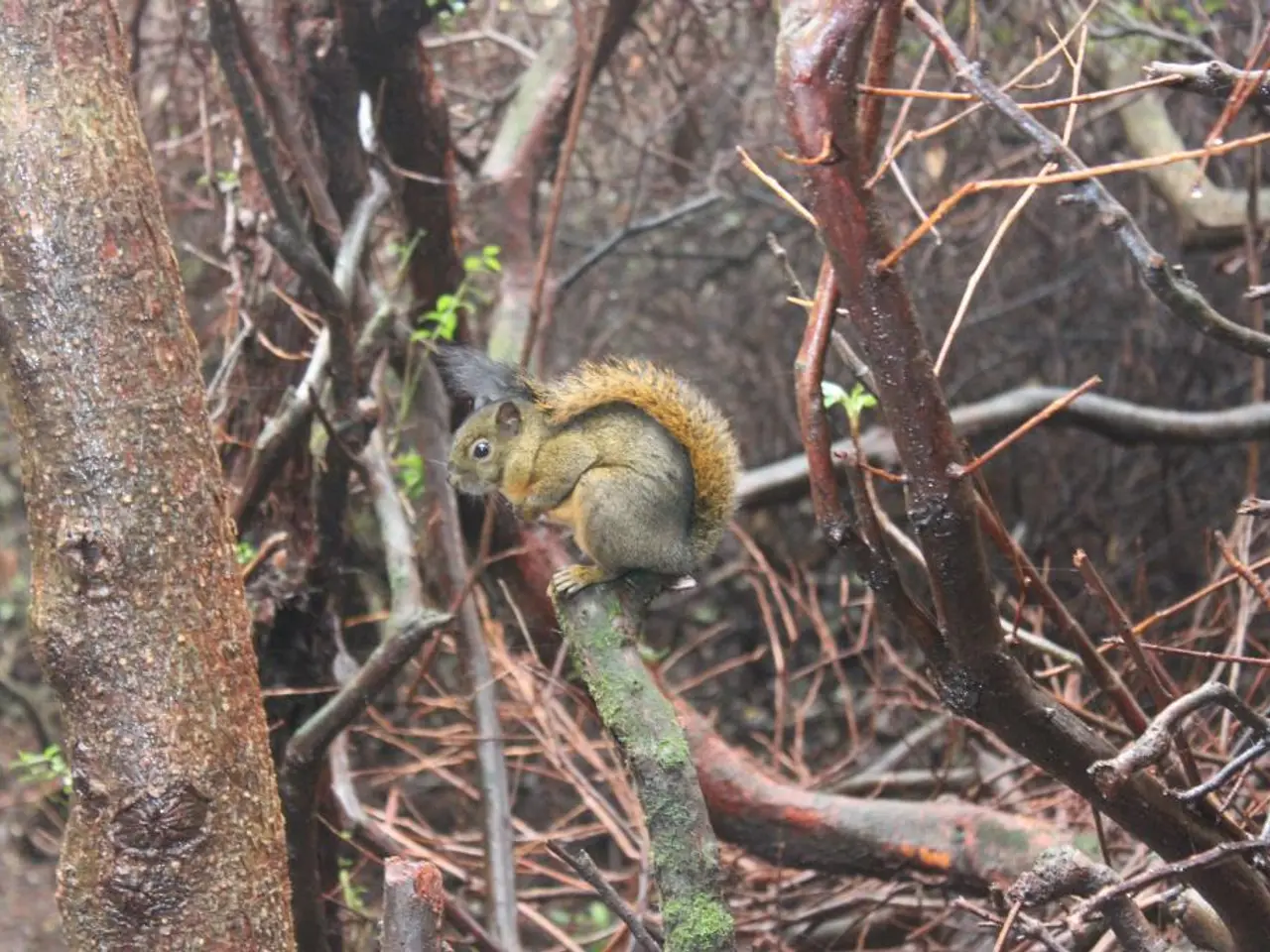Strategies to deter squirrels from your fruit trees to safeguard upcoming yields
================================================================
In the lush gardens of our neighbourhoods, squirrels can pose a challenge for fruit tree enthusiasts. However, with a humane approach, it's possible to protect your precious produce without causing harm to these adorable creatures.
Employing a combination of methods, such as netting, natural deterrents, baffles, and tree tidiness, can create an effective strategy for keeping squirrels at bay.
Netting
One of the most straightforward methods is using fine mesh or bird netting to cover fruit trees. Securely fasten the net around the tree and the ground to prevent squirrels from slipping underneath. This physical barrier stops squirrels from accessing the fruit without causing them any harm.
Natural Deterrents
Planting or spreading natural squirrel repellents, such as peppermint and marigolds, around the base or under the trees can deter squirrels. These plants emit scents that squirrels find unpleasant, discouraging them from approaching the trees. Additionally, placing a shallow bowl of water near the trees can reduce squirrel damage by satisfying their hydration needs, making the fruit less attractive to them.
Baffles
Installing squirrel baffles—smooth, slippery barriers—around the trunks of fruit trees can prevent squirrels from climbing up. These can be metal or plastic cones or cylinders fitted around the trunk, stopping squirrels mechanically without injury.
Tree Tidiness
Maintaining clean and tidy trees by regularly removing fallen fruits and debris that attract squirrels is essential. Pruning low-hanging branches that squirrels might use as jumping points to access fruit trees also helps reduce their appeal.
DIY Baffles
For those who prefer a more hands-on approach, a DIY tree baffle can be created using an old plastic bucket. Cut off the bottom, slice down one side, and fit it snugly around the tree trunk. For added security, drill holes on each side and suspend it from a lower branch using garden string or twine.
Pruning Fruit Trees
Trimming branches that overhang or come close to other trees, neighbours' trees, or any fences helps reduce squirrels' access points and makes it harder for them to jump onto fruit trees, resulting in better harvests.
Expert Advice
Mark Dwelly, head gardener at Audley Villages, and Graham Smith MCIHort, LBS Horticulture's gardening expert, both suggest using these methods to keep squirrels away from fruit trees.
For a sturdy pair of secateurs to prune your fruit trees, consider the Spear & Jackson Razorsharp Geared Anvil Secateurs. Additionally, companion planting ideas can be effective if you know what plants to look out for to deter squirrels. Squirrel deterrent plants, such as spearmint and fritillaries, are known for their strong scents.
By employing these strategies, you can enjoy a bountiful harvest while ensuring a harmonious coexistence with our furry garden neighbours. Happy gardening!
[1] King, S., (June 2024). "Keeping Squirrels Away from Fruit Trees: A Humane Approach." Our Platform. [3] Dwelly, M., (2023). "Squirrel-Proofing Your Fruit Trees: A Practical Guide." Audley Villages Gardening Blog.
When maintaining a vibrant home-and-garden, consider the addition of squirrel-deterrent plants like spearmint and fritillaries to your garden layout, which may help keep squirrels at a distance. Frequent pruning of fruit tree branches, especially low-hanging ones, may also discourage squirrels from finding easy access to your trees.




